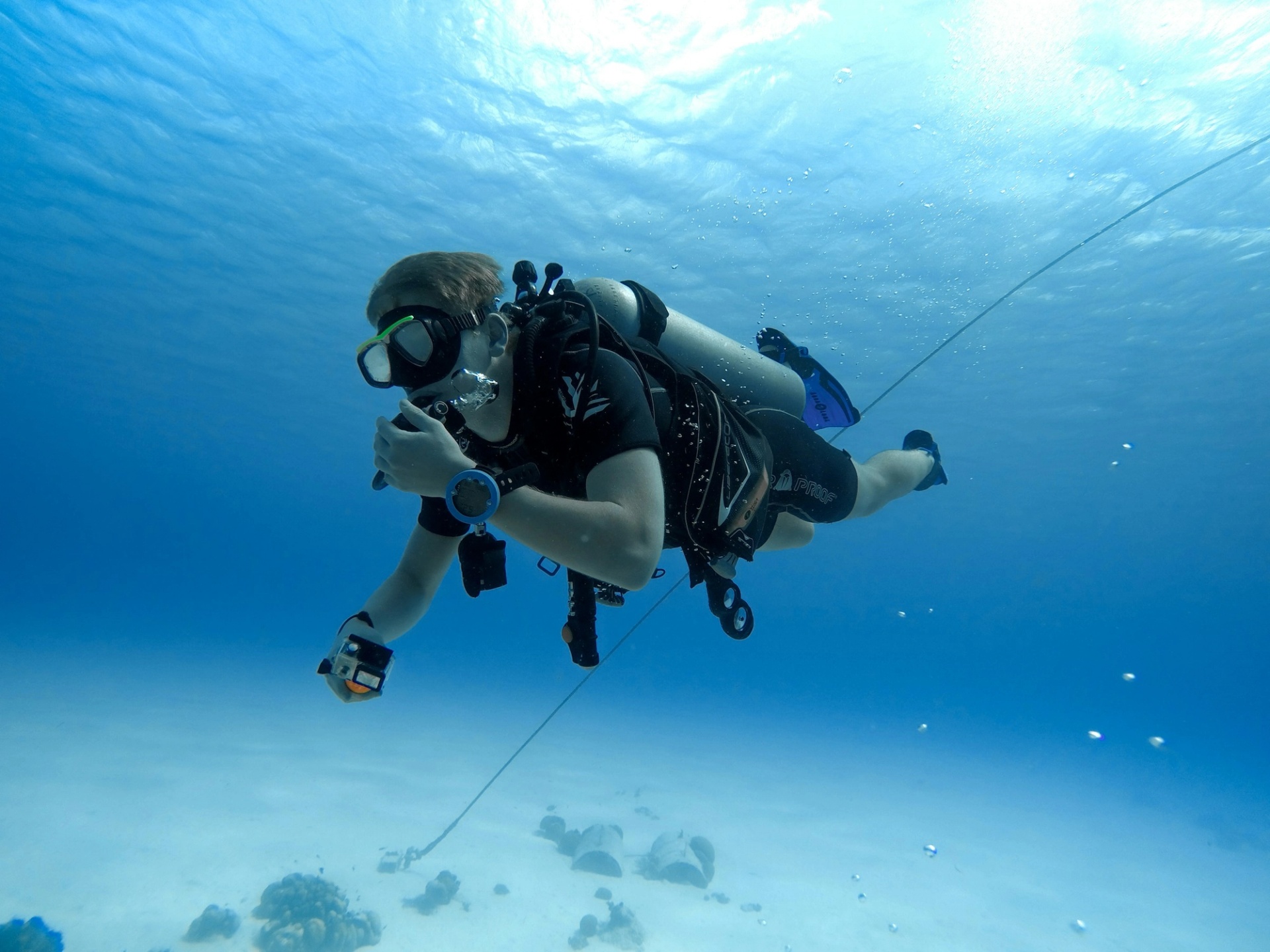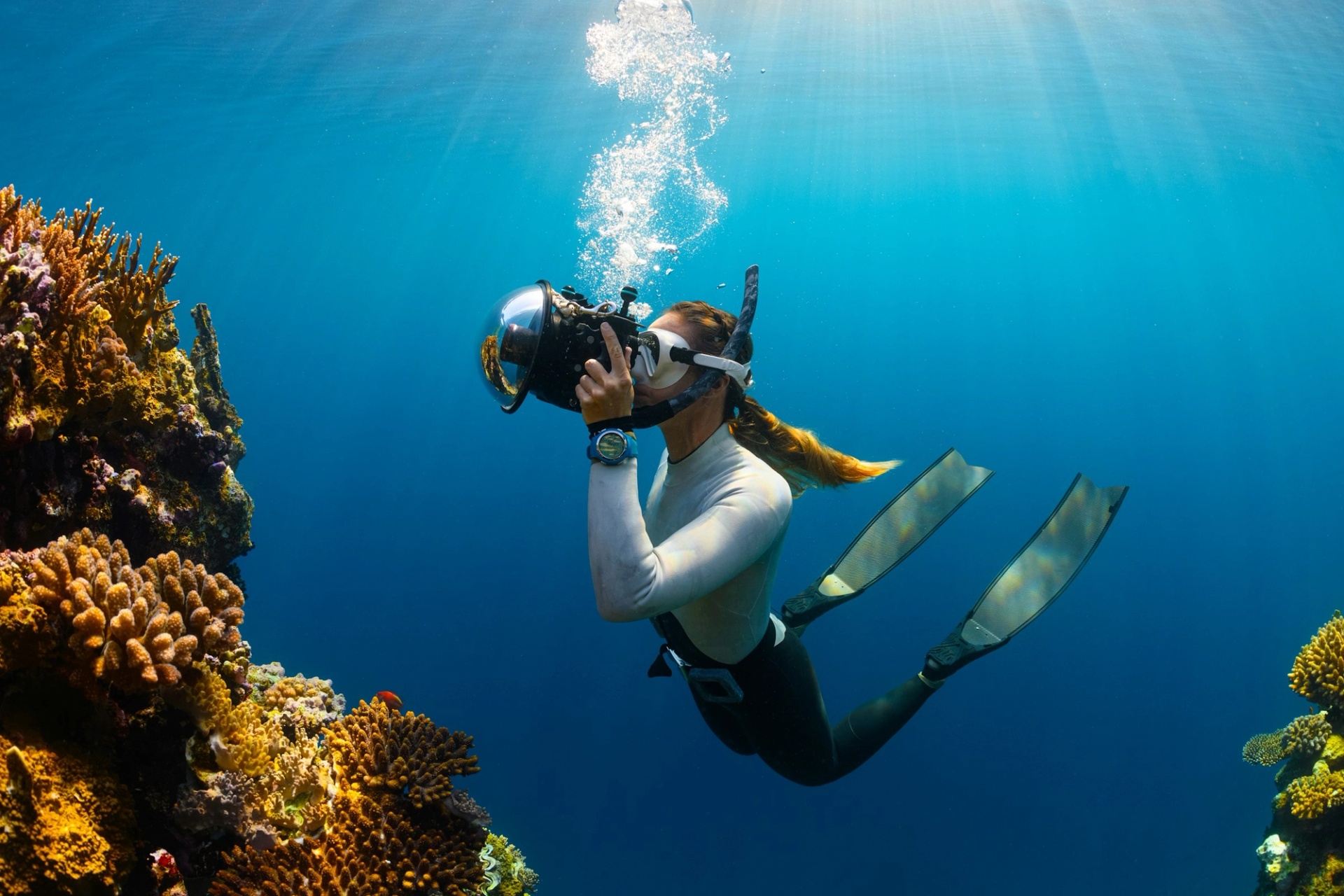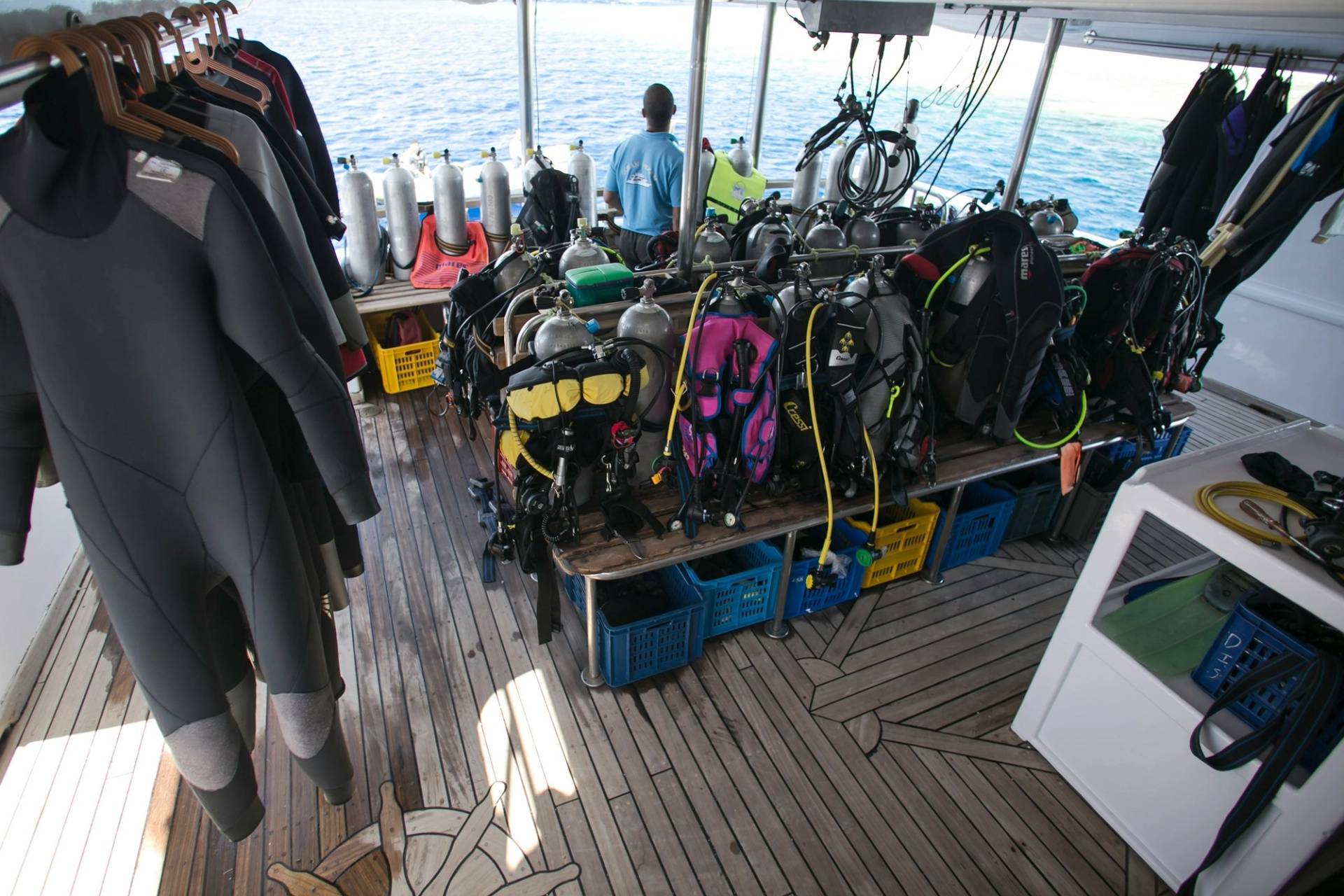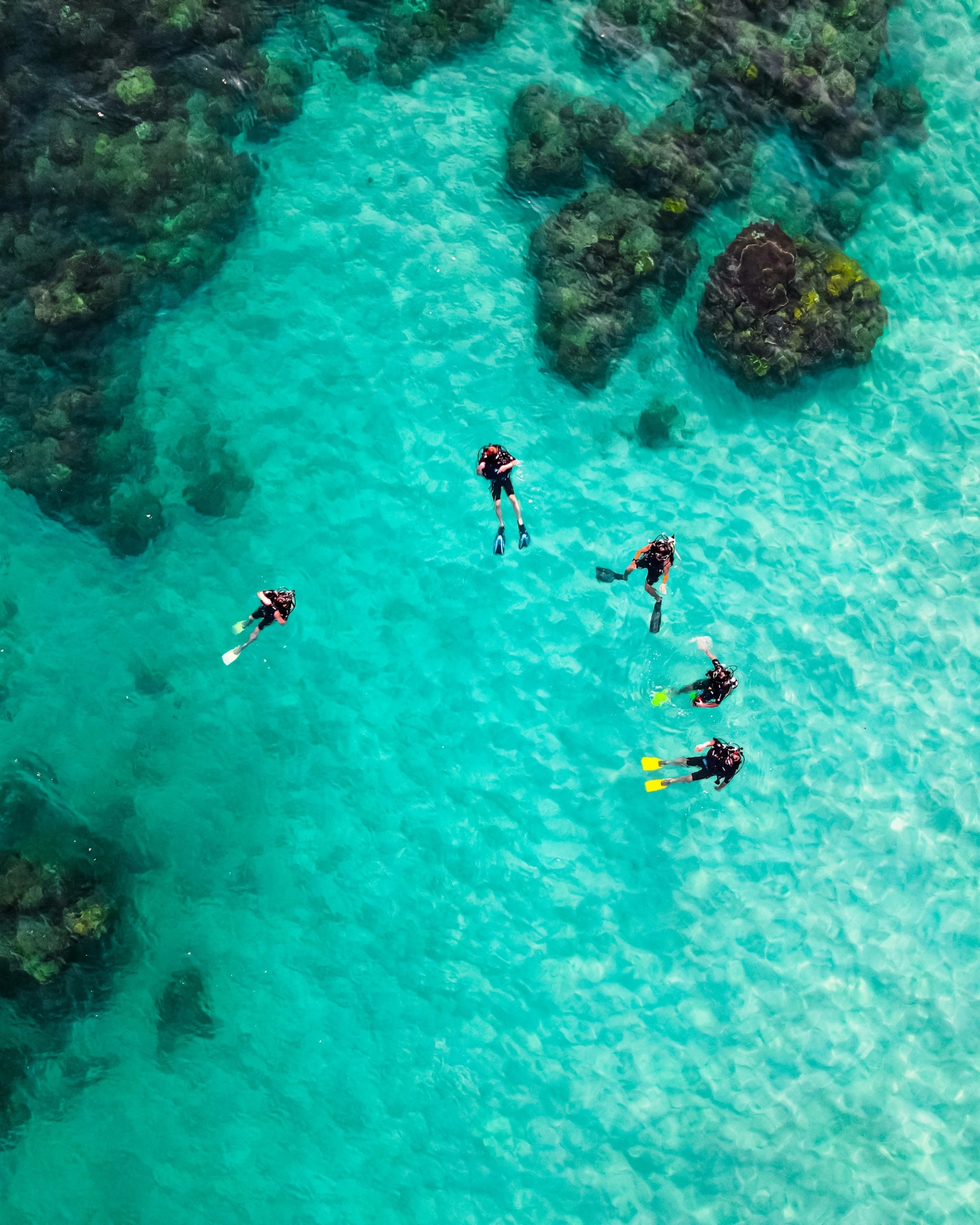
Scuba diving opens the door to an entirely new world, transforming the mysterious underwater realm into an accessible frontier of discovery. From your first breaths beneath the surface to exploring vibrant reefs and marine life, this transformative activity creates a profound connection with our oceans while building confidence, self-reliance, and environmental stewardship. Whether seeking peaceful underwater encounters or adventurous explorations, scuba diving welcomes curious minds with its blend of technical skill and natural wonder.
Learning Journey
Days 1-2: Pool sessions for equipment familiarization and essential skills
Days 3-5: Confined water practice and theory instruction
Week 1: First open water dives (typically 4) with instructor supervision
Weeks 2-4: Building comfort with new environments and conditions
Months 2-6: Specialty training (night diving, deeper diving, navigation)
Most students earn open water certification within 4-7 days of structured training.
Essential Gear
BCD (Buoyancy Control Device)
Regulator Set (Primary and backup breathing systems)
Dive Computer (For depth, time, and decompression tracking)
Exposure Protection (Wetsuit or drysuit appropriate for conditions)
Mask (Properly fitted)Fins (Open-heel with booties or full-foot)
Weight System (For proper buoyancy)
Tanks (Usually rented initially)
Surface Marker Buoy (Safety equipment)
Dive Light (Even for daytime dives)

Best Locations
Ideal beginner scuba diving sites feature:
Protected, calm water conditions
Good visibility (30+ feet)
Minimal currents
Shallow entry points and depths (30-40 feet)
Interesting but non-threatening marine life
Professional dive centers with certified instructors
Easy shore access or boat entry options
Warm water for first experiences

